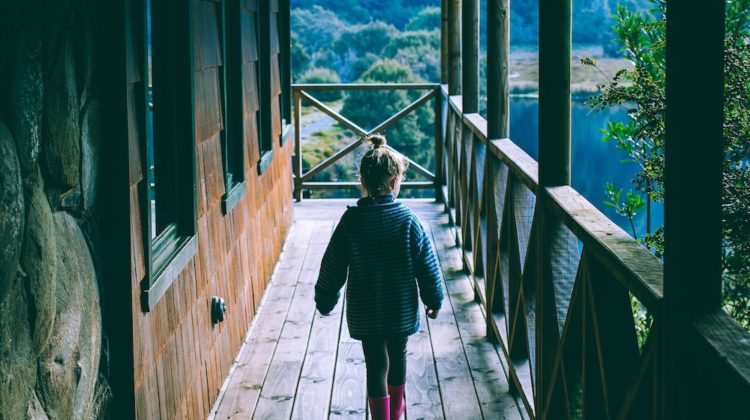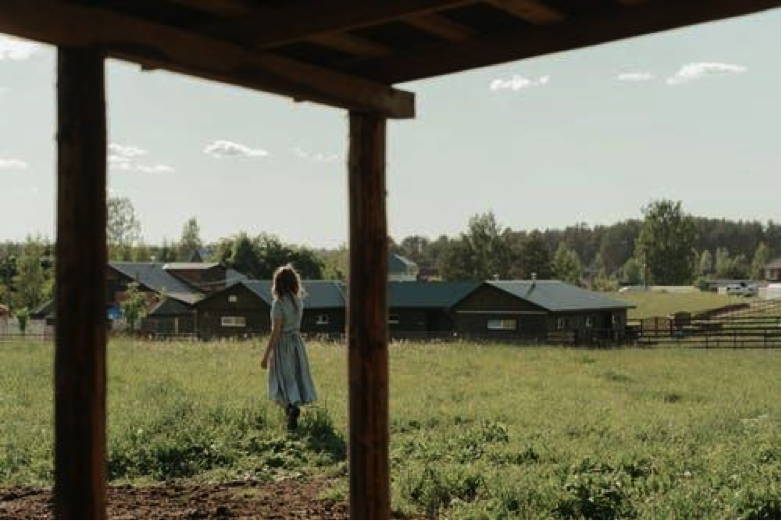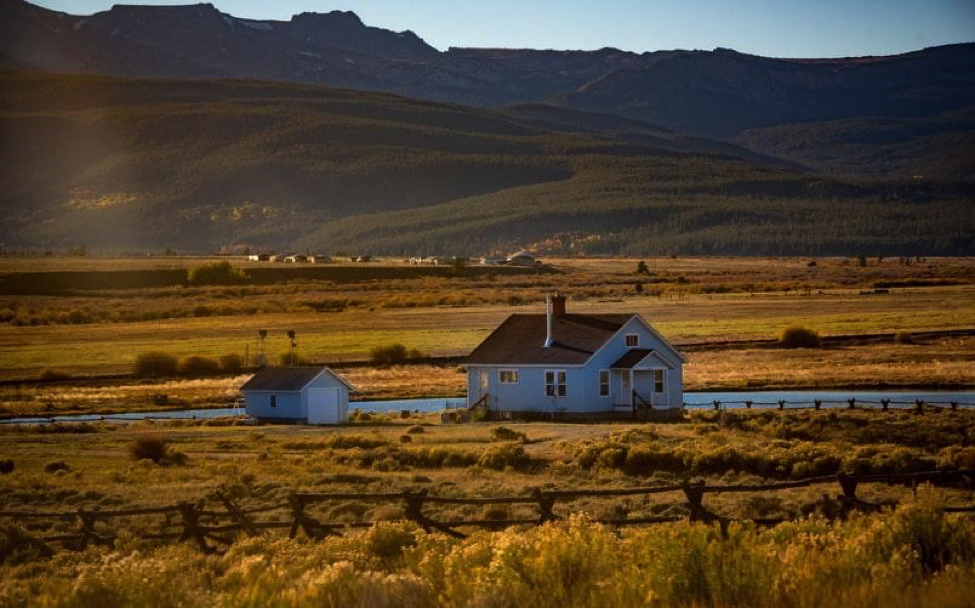
Many people started homesteading because they had a desire to grow food without chemicals and raise livestock in a humane way. In the process, this way of life gives families many unforeseen benefits that develop their character. It may sound like a hard life, but raising kids on a homestead is incredibly rewarding and also easier than you might think.
Raising Kids on a Homestead Teaches Self-sufficient Living
It was once said that in this life, there are only two things a person needs to be happy and successful: purpose and passion. All things stem from these two concepts. And without them, there is no desire, no drive, no ambition, and life seems to lose its color and texture. Eventually, you stop caring about anything.
Passion feeds the soul, and purpose gives us direction. Purpose shows us the boundaries, and passion urges us to push those boundaries. From an incredible marriage, everything that is worthwhile to the building of the first automobile, to the cure for an orphan disease, all start in the heart of a person with a deep well of passion and the power of purpose.

Do you love to write? Your muse will not bless the work and help your prose if you don’t care about the characters’ journey. Do you love tools and how they can be used to create? The desire to learn and grow in this knowledge is at the heart of driven ambition.
Alex Buzoveria loves tools and wants to share this passion with his son. In the HomeMakerGuide appliance expert Alex Buzoveria taught his son how to start a chainsaw. He wanted to share his passion for enriching and informing. His purpose is to give his son new knowledge and experience, plus give him useful skills that might benefit him in life. As a parent, it is crucial that your kids see your passion and purpose.
What is Homesteading?

In short, homesteading is self-sufficiency using subsistence agriculture and minimal reliance on publicly run utilities. Growing your own food, making products for yourself and selling, and living off the land. Homesteading is a small-scale farm of sorts, run by you and your family, to create a simple life without the shackles of the outside world.
Now, to define it, it sounds like a cult, but it is far from it. Think of it this way. If you grow your own food, you know exactly what is in it. Milk your own cows and you know where the milk came from. Rely on solar power and you aren’t adding to the carbon footprint inherent in public utilities. You are taking the guesswork out of sustenance and engineering your own destiny, beholden to none.
It is different than farming because most of what you grow is just for your family and your needs. Can you take your home-grown vegetables to a farmer’s market? Sure. But most homesteaders only grow what they need and very little more than that to reduce waste. If something organic does go bad, it gets composted and becomes fertilizer for the next small crop. It is a self-sustaining circle of life.
How Do Kids Fit Into Homesteading?
Kids learn by example. And young kids learn by experience. That is why there are so many options for kids’ garden toys. If they watch your garden, they want to garden with you. And if you teach them why gardening is so important, the knowledge soaks in and becomes important to them as well. Watch their eyes the first time you take a big orange carrot out of the dirt. They are blown away.
Kids watch mom and dad cook delicious meals. A kids’ kitchen set is not just a pretend way for them to show what they have taken from watching you, but also a simulation to learn how things work. The same applies to kids’ outdoor toys. You push a mower or drive a tractor, and they want to experience it, too.
Kids want to grow and be like their greatest role models. This is why raising kids on a homestead can be so rewarding. In a homestead, kids learn faster because there are less distractions to keep their focus away from the family’s needs. Kids can cook at an earlier age with parental supervision and pride. And kids can play in a setting that helps their minds expand with useful knowledge and skills. That is how kids learn; by experiences.
What Can Small Children Do in a Homestead?
Conventional wisdom would say, whatever you teach them. But the truth, and this is from many, many parents, is that kids are very eager to help, but also eager to be kids and play and make a mess and throw tantrums. If you raise your kids on a homestead, they are still children and will act like children. Keep that in mind, especially with younger children.
They don’t understand yet why something has to be done a certain way, why other things have to be done every day, and why they are too little to undertake certain tasks. They need nurturing and guidance. When kids start walking, they open up to new opportunities, but they are still too small for many chores. Be patient and curb your need to accelerate the clock. They will get there in their own time.
The upside to having kids grow up in a homestead, is they don’t know any other way to live, so they are conditioned to dive into the work earlier with a need to be useful. Most of the typical distractions and deterrents that keep kids lethargic and apathetic are not available, so they have to find a way to fill the hours. And even when kids start school, their brains are already wired toward being a contributor to their environment. They are often more helpful than other kids.
What Do Kids Like Best About Homesteading?
What kids say they enjoy most is often something involving the animals. Small kids love to play with goats, chickens, ducks, and other smaller, softer critters. It is good to research what kids like when it comes to animals, so they will want to bond, instead of being forced to. A kid who truly loves a baby goat or a hen who lays perfect eggs will be more likely to care for them more deeply, emotionally.
The only drawback is when the animal dies or gets sick, for kids, this can be devastating on a grander level than it is for adults. Kids on homesteads learn about death in this way often. Harsh winters, the need to slaughter for food, and the occasional predator attack opens their tiny eyes and minds to a less joyful aspect of life you as parents try to shield them from.
This is a chance to show them how to grieve, how to endure beyond loss, and how to push past the sadness and channel it in a positive way. If their favorite lamb is killed by a fox, grieve with them, then show them how to cope. Dress them in their kids’ clothes and kids wellies and go do some chores that require little thought. Much out of a stall or feeding the chickens. They will see how you cope and imitate it. They need to know it is okay to be sad, but it is also okay to keep going.
Kids VS Parents on the Homestead
Families in homesteads are very close-knit, but that doesn’t mean there is never tension as the children grow into adolescence. Hormones, emotions, and changes to their body can throw your kids for a loop, and your explanations might not cut it in their still developing brains. You might even have some real screaming matches over things that are often incredibly petty.
This is also where raising kids on a homestead can pay off. Even when they are furious at you and throwing their old kids’ garden furniture across the yard, they are still fundamentally driven to do the work they have been doing for years. Muscle memory takes over, and they don’t realize they are doing it.
Anger, rage, frustration, and other harsh emotions, are best served when they have an outlet. Lots of kids get mad but don’t know how to funnel it into a positive chore. They lash out, hit other kids, and do terrible things, just to get the fury out of them. On a homestead, there is always something to do, always some work or chore, and the anger can be used as fuel to get the job done faster. By the time the chore is finished, the anger has subsided, or at least has been tamped down to mild annoyance.
Conclusion
If you are planning to do some homesteading, but you live in the city, plan some nature activities for kids so they can get used to being outside. The culture shock between city and farm will be less severe. And look up kids’ recipes so they can help you cook your home-grown vegetables, that way they can be useful in most of the home’s needs. Get your kids involved and it will help them develop the passion to be self-sustaining, and see the purpose in why you chose to live this way.
Have you ever considered raising kids on a homestead?
Main photo credit: Simon Rae




Leave a Reply
You must be logged in to post a comment.